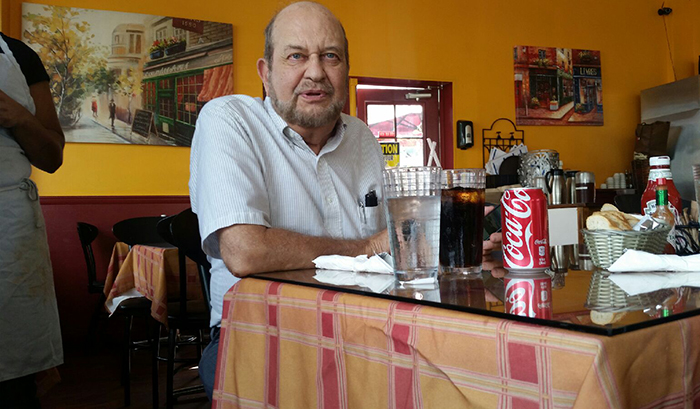It takes fewer valid signatures to qualify an initiative for a statewide vote than at any time in the last 20 years – 365,880, almost 150,000 less than just two years ago.
Caused by the extreme low turnout in the midterm election of 2014, it has led many so-called experts to assume voters would be dealing with blanket-length ballots this fall. The November ballot will be long and filled with interesting issues – not to mention colorful candidates. But the list of propositions will set no records this year despite the seeming ease of qualifying them.
One reason is, the plethora of initiatives put forward over the last 18 months has created intense competition for signatures, driving prices paid to petition carriers to near-record levels.
This demonstrates that a process originally designed more than 100 years ago to allow grassroots action has become the domain of big-money interests. That’s what it means when the bounties paid for valid voter signatures rise to the $4 and $5 range, where they are today. At five bucks per John Henry, it costs almost $2 million to put a measure on the ballot, even if the number of signatures needed is relatively low. Not everyone has that kind of money, even if it only costs $200 to submit a prospective measure for naming and authorization to circulate.
So…There will be no vote this fall on whether to require parents to be notified if their under-18 daughter(s) seek to get an abortion. This plan has failed in two other statewide votes, but anti-abortion activists wanted to give it another shot until they ran out of money.
The notion of California declaring itself a sovereign nation (or almost) also won’t make the ballot, even if the idea is fun to contemplate. Nor will the notion of calling the state’s chief executive a president rather than a mere governor.
What About a Tax Exemption?
No vote on raising the homeowner’s property tax exemption. Nor will voters get to decide whether to ban sales or consumption of shellfish like shrimp. No attempt to raise some property taxes, as opponents of the landmark 1978 Prop. 13 have long sought. The Legislature will not be expanded by 100-fold, either.
Neither will there be a vote on using bullet train bond money for water projects.
It’s uncertain whether Gov. Brown’s plan to give judges more discretion in sentencing convicts will make the ballot. His petition carriers reportedly are getting $5 for each valid name they submit, eating up chunks of the huge war chest Mr. Brown retained after his low-budget, low-profile 2014 reelection campaign. It is almost certain that one or more proposals to legalize recreational marijuana growing and use will get to a vote. And that a proposed 12-year extension of the tax increases passed in 2012 as Prop. 30 will make the ballot.
Already on that ballot are measures to require use of condoms in all pornographic films shot in California, an expansion of a Los Angeles County law, and $9 billion in planned school bonds, much to be used for increased programming and not merely for construction.
There was to be a vote on a gradual increase to $15 in the minimum hourly wage, but sponsoring labor unions withdrew that one after they made a deal with Mr. Brown and key legislators. One reason lawmakers were so glad to reach that agreement: multiple millions earmarked for a campaign around the minimum wage will probably now flow to political candidates. No one is abandoning the fight over a proposal forbidding Medi-Cal and other state agencies from paying more than the federal Veterans Administration for prescription drugs.
Also on the ballot, but placed there by legislators, is a measure to modify and virtually eliminate the ban on bilingual education passed handily by voters in 1998 as Prop. 227.
Some have called all this a perversion of the initiative process, but if it is, it’s a distortion that began when payments for petition signatures became common in the 1970s. Attempts to ban those payments have been ruled unconstitutional several times. If there is to be reform, it will have to take some other form.
Mr. Elias may be contacted at tdelias@aol.com. His book, “The Burzynski Breakthrough, The Most Promising Cancer Treatment and the Government’s Campaign to Squelch It,” is now available in a soft cover fourth edition. For more Elias columns, visit www.californiafocus.net








